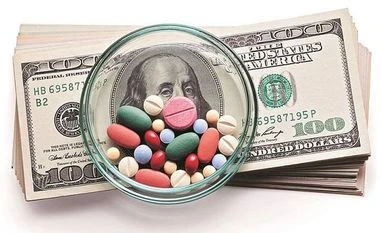Restart unannounced inspections of drug units in India, China: US senator
The chairman of the Senate Finance Committee said this was needed as these facilities provided most of the ingredients for production inside the US
)
Explore Business Standard
The chairman of the Senate Finance Committee said this was needed as these facilities provided most of the ingredients for production inside the US
)
Senior US Senator Chuck Grassley has urged the Trump administration to "reinstate unannounced" inspections of prescription drug manufacturing facilities in foreign countries, especially in India and China.
The chairman of the Senate Finance Committee said this was needed as these facilities provided most of the ingredients for production inside the US.
In the light of the administration's new Safe Importation Action Plan, Grassley, said it was important to determine more accurately if these facilities meet set standards of quality and safety for both domestic and importation purposes.
Unbeknownst to many consumers 80 per cent of active pharmaceutical ingredients are produced abroad, the majority in China and India; however, the FDA only inspected one in five registered human drug manufacturing facilities abroad last year, he said
Grassley raised the issue in a letter, dated August 7, to Department of Health and Human Services (HHS) Secretary Alex Azar and Food and Drug Administration (FDA) Acting Commissioner Norman Sharpless.
"I strongly encourage the administration's demonstration projects to include unannounced inspections in foreign manufacturing facilities to determine whether they meet the required active pharmaceutical ingredients and drug quality and safety standards to include sufficient record-keeping, testing and protections against counterfeiting, the senator said.
Grassley had also sent a letter in June to Azar and Sharpless on the issue.
The senator has sought information on the quality controls for prescription drugs and their components manufactured in foreign countries, specifically China and India.
He also asked what the FDA is doing to uphold safety standards in the US, China and India via inspections of manufacturing facilities.
Reports have noted that 80 percent of active pharmaceutical ingredients are produced in China and India and that facilities in those countries have not maintained adequate quality control standards, according to the letter.
Since my June 2019 letter to the FDA, I have learned that the FDA does not track in its databases whether a foreign inspection was subject to an announced or unannounced visit, he wrote.
Further, the FDA generally does not perform unannounced visits of drug manufacturing facilities in foreign countries but does perform unannounced visits at facilities based in the United States, Grassley rued.
Should the adminstration's action plan be put into effect, the administration must require more foreign inspections generally and unannounced inspections specifically, particularly compared to previous administrations, he added.
For example, in 2013 the FDA created a pilot programme in India that eliminated advanced notice and instead used short notice or unannounced visits.
"The pilot program also arranged for FDA inspectors' travel to be arranged through the US embassies instead of through FDA offices or manufacturer-arranged travel plans to provide more secrecy in the lead-up to inspections, Grassley said.
According to reports, the new inspection regime exposed widespread malfeasance that had otherwise been hidden because of the advanced warning system, he said.
Among the findings, the inspections found bird infestations, missing samples, and fake laboratories, all of which negatively impact drug quality and safety. Under the pilot program, the FDA issued a 60 percent increase in Official Action Indicated findings, Grassley said.
First Published: Aug 08 2019 | 5:25 AM IST